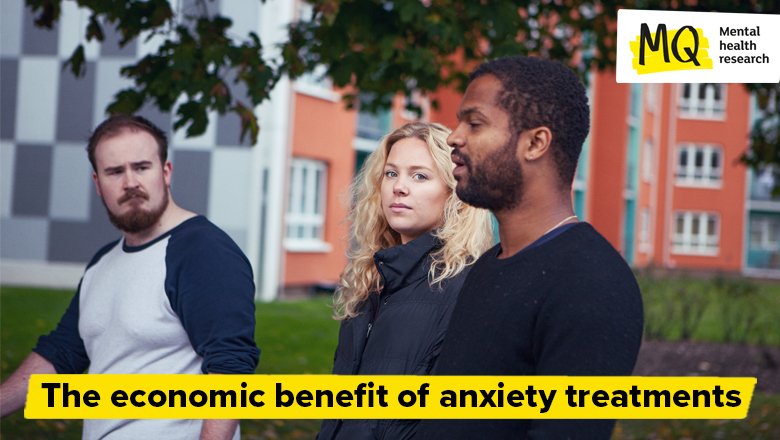The economic benefits of LENS treatment for people with anxiety

New research from MQ and Pro Bono Economics has found that if a new treatment for anxiety, called LENS, were rolled out to the 1.4 million people in need in the UK, the improved quality of life they might experience would be as much as £2.9 billion in economic benefits.
Anxiety disorders affect large parts of the population and their impact can be debilitating. Most people experience some symptoms of anxiety in response to stress or danger; however, anxiety becomes a problem when it is regular or excessive, and difficult to control.
Generalised anxiety disorder (GAD) is one of the most common anxiety conditions. It is characterised by persistent, excessive worry about many different things (rather than anxiety about specific situations). In 2014, over 5% of people in England reported symptoms of GAD serious enough to warrant clinical recognition; two-thirds of those experienced severe symptoms. Following the Covid pandemic, people throughout the UK have reported experiencing worse anxiety than in previous years.
Current NHS treatments for GAD usually involve some form of cognitive behavioural therapy (CBT), ranging from guided self-help courses to sessions with a therapist. Many of these treatments require interaction with or supervision by a trained therapist, which limits availability and may also discourage some sufferers from seeking treatment.
But what are the economic benefits of this treatment to society?
A recent study by Pro Bono Economics, funded by MQ, showed that a new treatment, titled Learning Effective New Strategies (LENS), which can be administered remotely, could be effective in helping people who experience GAD to recover. The LENS treatment, which consists of a training programme designed to embed effective strategies for reducing anxiety, was delivered entirely online and has since been developed into an app.
MQ asked Pro Bono Economics (PBE) to estimate what the potential benefits of this treatment might be, if it were made available to anxiety sufferers in the general population. Using statistics on mental illness and standard valuation techniques, PBE translated the study outcomes to numbers which reflect the scale of the benefits the treatment might achieve.
Symptoms of anxiety can have a serious impact on a sufferer’s quality of life. As well as feelings of worry or restlessness, symptoms might include difficulty concentrating, difficulty sleeping, dizziness, and heart palpitations. The World Health Organisation (WHO) provides representative measures of the impact of anxiety and other physical and mental health conditions on quality of life. The detrimental impact that severe anxiety has on the sufferer’s quality of life is estimated to be just slightly lower than that of someone experiencing terminal cancer with medication.
The key metric used in this report is quality-adjusted life years (QALYs), used by the National Institute for Health and Care Excellence (NICE) to represent the health benefits in terms of improvement in quality of life from an intervention. Conceptually, one QALY represents one year of life in perfect physical and mental health. The impact of severe anxiety on a sufferer is more than half a QALY: that is to say, it is equivalent to losing half a year of life in full health. Treasury valuation standards are used to convert this potential improvement into an economic benefit as valued in today’s pounds.
If the LENS treatment were rolled out to the 1.4 million people that might be both suffering from and likely to seek treatment for anxiety, the improved quality of life they might experience would be substantial: estimates express this as almost 40,000 QALYs, or as much as £2.9 billion in value. However, the range of estimated benefits is wide, and depends heavily on the assumptions that must be made to bridge gaps in the data used. Testing of various scenarios suggests the benefits could range between £1 billion and £5 billion.
The precision of the estimates is heavily limited by the lack of detailed, recent data on the prevalence and severity of mental health illnesses in the UK. Better data, and thus more research, is needed to improve any future attempts to quantify the potential benefits of new treatments. MQ already helps researchers to rigorously evaluate their interventions; they might be able to facilitate further economic evaluations by both helping researchers to fill in some of these gaps in their own work, and by drawing attention to the paucity of data on mental health more broadly.
Source link
#economic #benefits #LENS #treatment #people #anxiety

